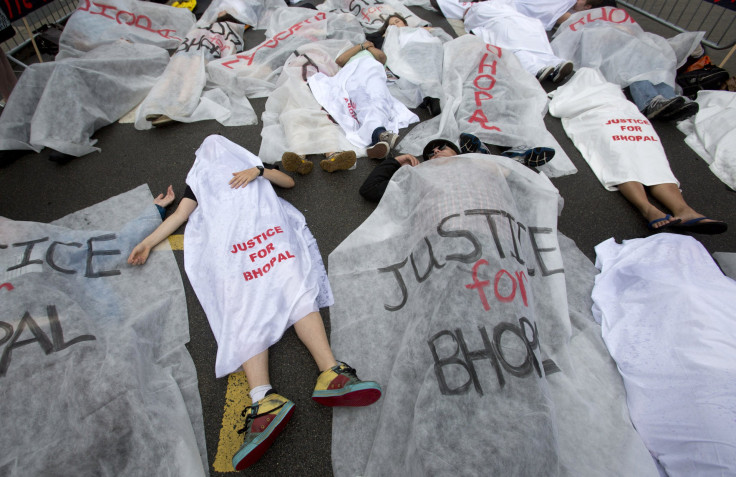Dow Chemical Blocks Shareholder Inquiry Into Bhopal Disaster

When Dow Chemical shareholders gather in Midland, Mich., they will no doubt raise a glass to the 14 percent rise in first quarter earnings and to shares that have appreciated by 58 percent over the past 12 months.
There may be some grumbling over calls from a shareholder -- hedge fund Third Point -- to break the group up, but the overall mood will surely be congratulatory. However, 30 years on from the gas leak at Bhopal, it is unlikely one of the world's worst industrial disasters will merit even a footnote.
At around midnight on Dec. 3, 1984, deadly methyl isocyanate, or MIC, gas was accidentally released from a pesticide plant in the Indian city of Bhopal. The plant was owned by Union Carbide, a company that was bought by Dow Chemical in 2001. More than half a million people were exposed to the gas. Estimates as to how many people died range from 8,000 to 16,000. An estimated 40,000 people were permanently disabled, maimed or made severely ill.
But, Dow Chemical has blocked a shareholder resolution asking for a report on the financial, reputational and operational impact of Bhopal on Dow's business to be presented at today's annual shareholders' meeting.
"Dow's refusal to talk about the Bhopal disaster ignores the continued suffering of the local community, and is an irresponsible business move," said Audrey Gaughran, director of global issues at Amnesty International, which is campaigning for the company to admit culpability.
The company will appear before courts in Bhopal this July to explain why it has failed to answer charges of culpable homicide not amounting to murder. But it's unlikely that this will be raised at Thursday's meeting either.
As enormous as it is, Bhopal is far from the only blot on Dow's copybook. Many of the others were brought to the public's attention when the company was chosen as a key sponsor for London 2012. Dow has also been repeatedly denounced as a war criminal for its production of napalm and Agent Orange, used by U.S. troops in Vietnam.
It was embroiled in a scandal over its subsidiary Dow Corning's use of dioxin in defective breast implants, which caused medical complications for thousands of women in the 1980s and 1990s. And, as of September 2010, the company had paid out over $1.2 billion in lawsuits.
Most recently, protesters launched a petition to halt government approval for Dow's usage of 2,4-D in the manufacture of genetically engineered corn and soybeans. 2,4-D is a major component of Agent Orange. The petition failed, and the U.S. government granted permission in January.
"Surprised perhaps by the vehement public opposition, USDA acknowledged last year that these 2,4-D crops could in fact cause 'significant environmental harm,' and agreed to prepare a full Environmental Impact Statement (EIS). But in the draft EIS released last week, USDA simply shrugged away all of the public's concerns and announced its intention to approve both of Dow's 2,4-D resistant crops," the Pesticide Action Network said.
Again, these facts are unlikely to be mentioned in today's meeting. But, in the year that marks the thirtieth anniversary of the Bhopal disaster, they are all issues that bear recalling.
© Copyright IBTimes 2024. All rights reserved.
Join the Discussion




















